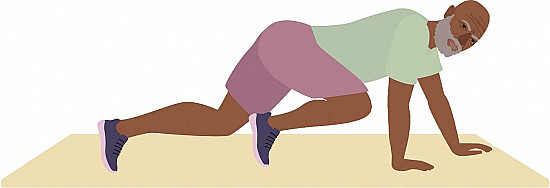Medications that increase your risk of falling

Many drugs can increase the risk of falls. The more drugs you take, the greater the chance that one or a combination of them will make a fall more likely to happen. Some medications are well known for side effects that increase a person's risk of falling.
Doctors prescribe anti-hypertensive medications to keep blood pressure under control and decrease the risk of stroke and heart failure. However, these drugs can cause blood pressure to get too low when you stand up from a lying or sitting position (orthostatic hypotension). This happens commonly in older folks. The result is lightheadedness and feeling faint, which can easily lead to a fall.
Medications that suppress the central nervous system are among those most likely to contribute to falling, as they reduce alertness and cause slower reactions and movements. These include:
- Anti-anxiety drugs, such as diazepam (Valium) and lorazepam (Ativan)
- Diphenhydramine (Benadryl), an older antihistamine. Because it causes drowsiness, it is the most popular ingredient in over-the-counter sleep aids like Nyquil, Sominex, and Unisom. It is often combined with pain medications, such as acetaminophen (Tylenol PM), ibuprofen (Motrin PM, Advil PM), and naproxen (Aleve PM).
- Prescription medications to treat overactive bladder, such as oxybutynin (Ditropan) and tolterodine (Detrol).
- Tricyclic antidepressants. Most often doctors prescribe these types of antidepressants, such as amitriptyline (Elavil), to help relieve chronic pain, especially nerve pain.
- Prescription sleep drugs, including zolpidem (Ambien), zaleplon (Sonata), and eszopiclone (Lunesta).
- Narcotics (opioids), such as codeine, hydrocodone (Vicodin), oxycodone (Percodan, Percocet), hydromorphone (Dilaudid), and fentanyl (Duragesic).
For more information on how to prevent falls, read Preventing Falls: Strategies to maintain health, strength, balance, and a safe home environment, an Online Guide from Harvard Medical School.
Image: © smartstock/GettyImages
Disclaimer:
As a service to our readers, Harvard Health Publishing provides access to our library of archived content. Please note the date of last review or update on all articles.
No content on this site, regardless of date, should ever be used as a substitute for direct medical advice from your doctor or other qualified clinician.















